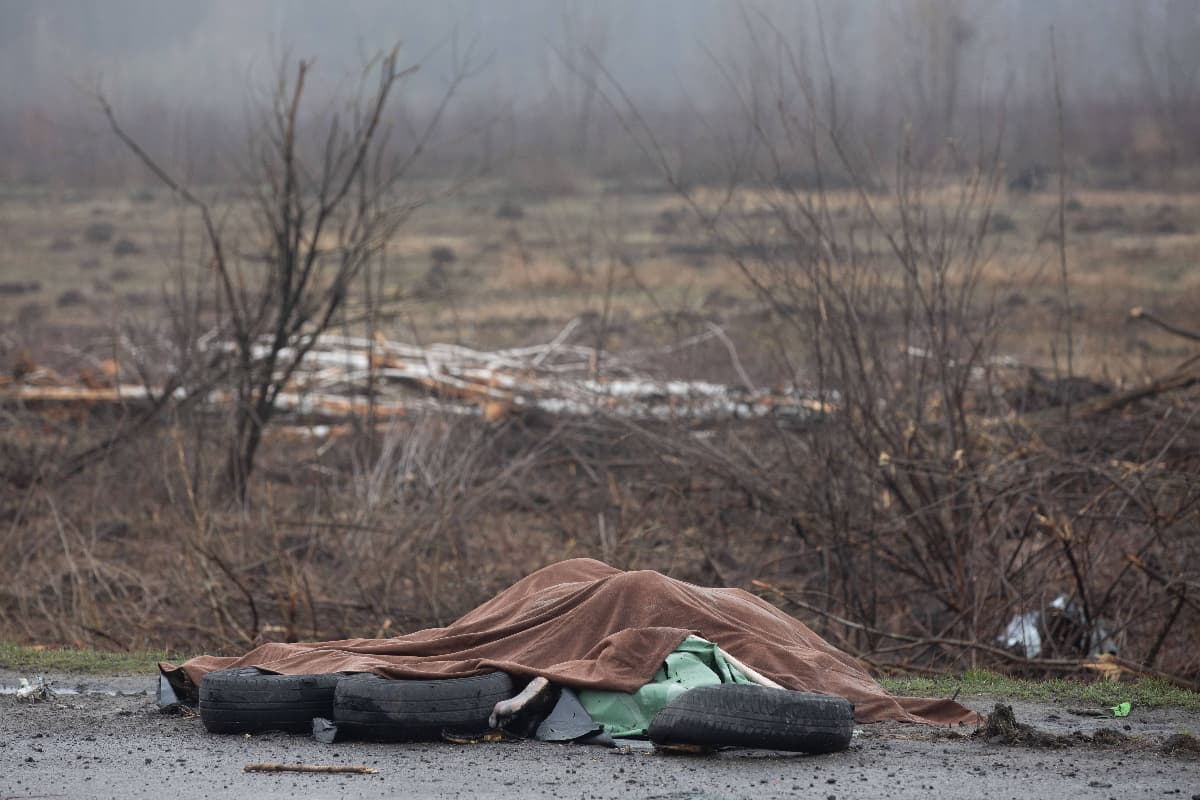Uyghur Tribunal Emerges as a Model for Addressing War Crimes in Ukraine
It is naïve to expect that the International Criminal Court and the International Court of Justice can deter President Putin from committing further atrocities.

The retreat of Russian forces around Kiev has disclosed atrocities committed in Ukrainian towns such as Bucha. These crimes demand to be documented and the evidence brought to light.
It is, however, naïve to expect that the International Criminal Court and the International Court of Justice can deter President Putin from committing further atrocities. These courts are vulnerable to delays and distortions from authoritarian countries that leave their rulings toothless.
Instead, there is a need for Western countries to sponsor an international tribunal, styled after the Uyghur Tribunal established in Britain, to document and publicize these war crimes. Such a tribunal would not seek to enforce its rulings but instead to influence public opinion.
The ICC has already launched an investigation into possible war crimes in response to the atrocities committed in Ukraine. The court will look at allegations of war crimes, crimes against humanity, and genocide as far back as 2013. The ICC’s investigations, though, are notoriously slow and ineffective.
This year the ICC asked for the arrest of three individuals they say committed war crimes in the Russo-Georgian war, a full 14 years after the crimes were committed. Yet Russia has no intention of allowing these three low-ranking officials to be prosecuted, and the ICC and ICJ have no way to enforce their rulings.
This intransigence makes laughable calls by the former chief prosecutor of the UN’s tribunal for an international arrest warrant to be issued for Mr. Putin. If the ICC is not able to bring three unimportant officials to justice, how are they supposed to hale before the Hague the man in control of the world’s largest nuclear arsenal?
In March, the ICJ issued a ruling in Ukraine’s case against the Russian Federation under the genocide convention. The ICJ ruled that Russia must immediately suspend military operations in Ukraine. This ruling failed to prevent Russia from committing further war crimes.
The Uyghur Tribunal that was set up to investigate China’s human rights abuses in 2020 could serve as a model for an analogous court in Ukraine. The Tribunal effectively assembled international legal experts to analyze the large body of evidence of China’s war crimes in Xinjiang.
The tribunal’s effectiveness is owing in part to its independence — it is not beholden to larger institutional structures. Rather, it simply assembles experts and allows them to make their judgements. This independence allowed it to become the first high-profile tribunal to overtly challenge China’s manipulation of international institutions to further malicious actions.
Forming such a Tribunal for the Russia-Ukraine conflict would have several advantages over the kind of work that the ICC and ICJ can do. It could work much more quickly than existing institutions. Because the Tribunal would not be accountable to bodies like the UN, it could avoid the crippling bureaucratic red tape and authoritarian subterfuge from which the ICC and ICJ currently suffer.
Such a Tribunal would go toward raising awareness of these war crimes and debunking disinformation. The information space during a time of war is crying out for an authoritative voice to parse a complex conflict in a way that is understandable for citizens.
Russia’s defense ministry already recognizes the value of influencing real-time information as it has stated that footage of bodies in Bucha was “fake” or staged by Ukraine for the Western media. The Russian foreign affairs ministry peddled this news all over social media without concerted pushback. The Tribunal can be that voice.
We must remain clear-eyed about the capabilities of a people’s Tribunal for the Russia-Ukraine conflict. Such a body would make no effort to bring the guilty parties to justice, recognizing that as a fool’s errand. The Tribunal could, though, become a leading voice in ensuring that people the world over never forget the depravity of the acts committed in Ukraine, and who executed them.
________________
Will Baumgardner, a research assistant at the American Enterprise Institute in Washington, D.C., also contributed to this piece.

